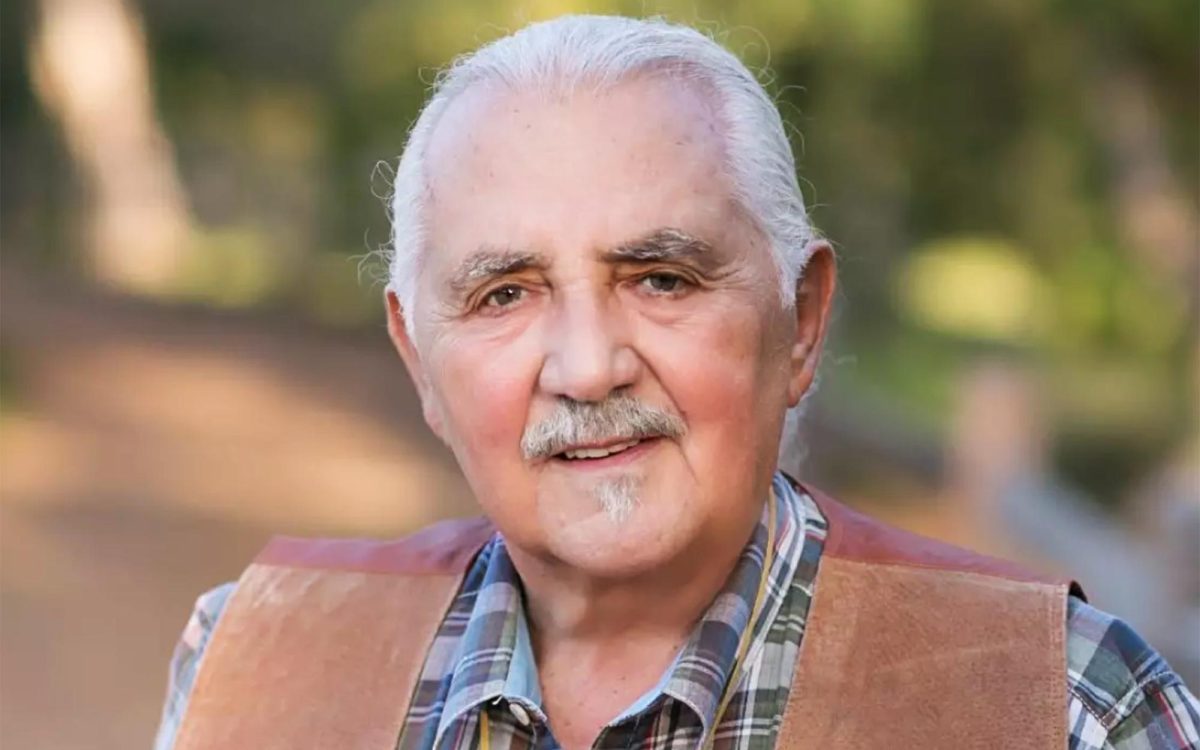Anthony “Tony” Brandenburg, who served the community, region, tribal nations and country in several notable ways, died at his home on Oct. 3 after battling cancer. He was 83 years old.
“Tony had a very colorful life,” Tony’s wife, Cindy Brandenburg, said. “It was his comedic side and his very colorful experiences throughout his life that made people want to know him and be around him.”
Leaving East Boston at 17, Brandenburg embarked on a cross-country hitchhiking journey that eventually led him to Encinitas — a place he chose to call home. He resided in Encinitas for more than 60 years, temporarily relocating only for educational purposes.
After six years of dedicated service in the Marine Corps, Brandenburg was honorably discharged.
Subsequently, he earned his Associate of Arts degree from Palomar College in 1965 and proceeded to build a successful career as a local entrepreneur.
He continued his educational journey, acquiring a Bachelor of Science degree in Education and a school teacher credential from Eastern State College, followed by a Master of Arts degree in Instructional Media and Curriculum Development from the University of Connecticut.
Brandenburg received his Juris Doctorate in Law from Thomas Jefferson University. Following the achievement, he was admitted to the bar of the state of California in 1983, officially becoming a lawyer in private practice.
Connecticut State University later awarded Brandenburg an honorary doctorate for his work on tribal issues.
In 1984, he was elected to the board of the Encinitas Union School District and served until 1990.
“The first time I met Tony was when he was elected to the Encinitas School District Board of Trustees and he was very polite,” said Mary Jo, a former coworker and longtime friend of Brandenburg. “He fit right in with us very quickly.”
Following that, Brandenburg was appointed to the California Municipal Court and was later promoted to the Superior Court, where he held the position of a commissioner on the bench at the Vista Courthouse for 16 years before retiring in 2004.
Brandenburg was recruited to serve as the chief judge of the Intertribal Court of Southern California, which led to his retirement from the Superior Court.
Continuing his judicial career, he served as the chief judge for a decade, retiring once more in 2016.
While serving as chief judge, he testified before the United States Senate regarding the Tribal Law and Order Act of 2010.
Throughout his career, he consistently worked toward improving the legal standing of Native Americans and enhancing the quality of life on all reservations.
“His main interest in life, which started in his early 50s and carried throughout the rest of his life, was his interest in Native American culture, relationships, and their way of life,” Cindy Brandenburg said. “It was more than a hobby. It was really a way of life.”
This passion was ignited during a road trip in his early 50s. At one point, Brandenburg arrived in a town called Shungopavi on the Hopi Reservation in northeastern Arizona. A Hopi couple welcomed and befriended him. Learning about their challenges with the village’s board of directors, Shungopavi stepped in to assist with the legal aspects. Over time, he spent countless hours in their courts, wrote a constitution for their village, and even frequently traveled on long weekends to visit the reservation.
Additionally, his affiliation with the Narragansett Tribe in Rhode Island was another inspiration that fueled his passion.
“Our living room is like a Native American small museum,” Cindy Brandenburg said. “We were pretty saturated in the Native American culture.”
Brandenburg was appointed to the Encinitas Planning Commission from 2010 to 2017 as a representative from the Olivenhain community. Friends and family recalled that he maintained a deep respect for his role in serving the community by patiently taking the time to explain the process to the public.
In addition to his time on the Planning Commission, Brandenburg served as president of the Olivenhain Town Council, the Encinitas Facilities Foundation and Palomar College Foundation. He also ran for the Encinitas City Council, although he did not win those races.
Brandenburg also previously served as president of the San Diego County Judges Association and the California State Commissioners Association, according to his SmartVoter biography.
Most recently, after a lifetime of dedicated work in the courts, he was called upon once again to serve as the chairman of the Ethics Commission for the Mandan, Hidatsa and Arikara Nation in central North Dakota.
With more than 30 years as a university professor, specializing in law, ethics and curriculum development, Brandenburg wrote numerous articles and publications on legal topics. Notably, he created teaching programs for the California Administrative Offices of the Court, trained over 200 pro-tem judges and received several awards including The Spirit of Luiseno Award from the Rincon Band of Mission Indians.
On Oct. 11, the Encinitas City Council presented a proclamation to the Brandenburg family, as Brandenburg did not live long enough to receive it himself.
“He was alive when the idea was proposed, but his cancer was quite advanced, so it was very unfortunate he passed away before we could present it to him personally,” Encinitas Mayor Tony Kranz said.
The presentation recognized Brandenburg for all the contributions he made to the city of Encinitas and the Native American community.
“His contributions were comprehensive, frequent, and outstanding,” the proclamation reads.
Cindy Brandenburg conveyed that the presentation meant a tremendous amount to the family.
Beyond the courtroom, Brandenburg enjoyed engaging in construction projects around his home and venturing on cruises alongside his family. Additionally, he devoted more than two decades to the Encinitas Rotary Club.
Oct. 11 was officially declared Judge Tony Brandenburg Day, a day to remember and honor him for his long history of service to the community, tribal nations, region and nation.
Alysse Dodge is a local freelance writer.



